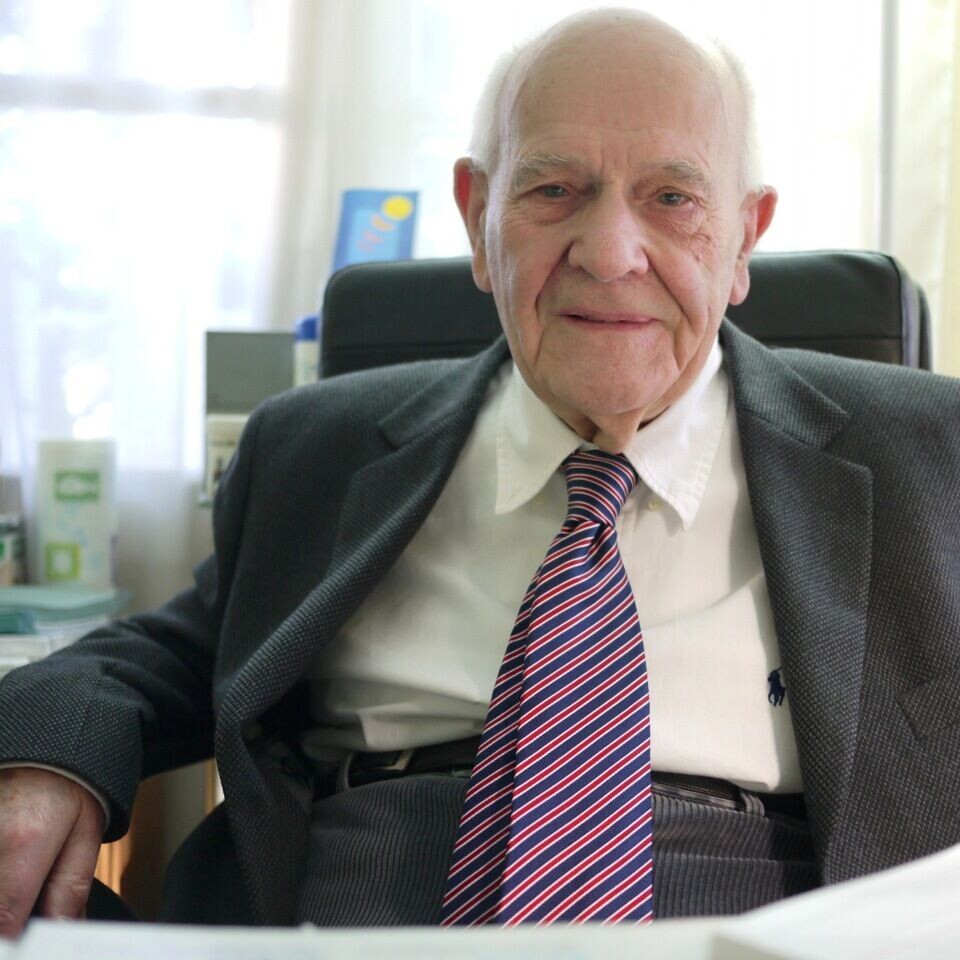-
White storks make strong return in France via nest ‘platforms’ and clipped wings
The Ligue pour la Protection des Oiseaux shares the conservation challenges in saving these birds from extinction
-
Hosting scheme in south-west France lets newcomers sample lifestyle
Households in nine Dordogne communes volunteer under Mes Nouveaux Voisins scheme
-
French boulangeries demand right for staff to work on May 1 so they can open
Artisan bakery owners can work but employees cannot, while certain industrial bakeries are allowed to remain open with workers
France’s oldest GP - aged 97
At 97, Dr Christian Chenay is France’s oldest practising GP. He still works two days a week and does not even wear glasses.

He starts at 7.30, in his cabinet at home, but patients are already waiting from six.
He is one of the few doctors in the area where patients do not need appointments.
Dr Chenay said: “I’m doing great. I’ve no memory trouble so it does not bother me. I am not the type to watch TV all day. I take the first 30 people and finish around 15h-17h.”
His clinic is in Chevilly-Larue, a commune of 19,000 people south of Paris and one of France’s medical “desert” areas, with only two full-time GPs.
Dr Chenay said: “If they don’t come early, they will not be able to see a doctor or they will have to go to the hospital, and hospitals are overwhelmed too.”
Working in a medical desert, he says “everyone is overwhelmed” and he did not think about retiring until this year.
He said: “People tell me to stop and I won’t work next winter.” But he says it will be complicated to replace him.
“Who would be crazy enough to take my job?” he jokes.
In his long career he has seen medicine evolve – and patient behaviour. “Patients are more demanding now and request very precise drugs”, he said.
Security is an issue for doctors in his area. His first wife was attacked by a patient in his cabinet in 1997.
As a result, he installed cameras in every room. He said: “Once I even caught a thief on camera.” But he is not scared. “I have been threatened, I had a lot of drug addicts coming.
“There is no safety for doctors but since I have the cameras, it is calmer.”
He worked with his son, also a doctor, for 37 years until his son retired at 66 after his wife died.
He also continues to visit a religious community, Séminaire des Missions. He has visited once a week since 1951 and does not want to leave them.
He said: “I am close to them because they are old and I have known them forever. Many of them are 100 or more. It would upset me to leave them.”
He plans to work on a second book after being surprised by the success of his first, Et si la vieillesse n’était pas un naufrage? Seniors, réveillez-vous! (What if old age was not sinking? Elder people, wake up!).
He said: “I am surprised because people want to get old in good condition so you have to be young for the longest possible time and don’t rest.”
He came from an Irish background but was born in Angers, and is worried about the future of medicine in France.
Medical deserts are a problem and so are taxes. He said: “You can be devoted but when you pay more and more taxes, you cannot continue.”
Medicine has changed “and not in a good way”, he added, saying he was concerned about important issues such as pensions for older people.
He said: “What is the point in living until 106 if you need to eat at Restos du Coeur?”
























